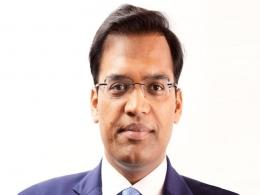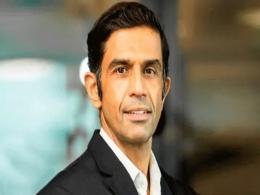ABB will sell a majority stake in its Power Grids division to Japan’s Hitachi and return the proceeds to shareholders, bowing to pressure from an activist investor to sell the business that makes transformers and converters.
The acquisition, which values the unit at $11 billion, will see Hitachi become one of the largest players in the power grid industry. For ABB, which also makes industrial robots, the deal offloads its least profitable division, allowing it to focus on automation.
But the decision to sell the unit marks a U-turn for ABB Chief Executive Ulrich Spiesshofer, who two years ago insisted on keeping the business despite calls to sell from shareholders, including Swedish activist investor Cevian which owns 5.34 percent of ABB.
“Our shareholders have been with us for many years, they have been patient and have also had perseverance with us to see through the transformation,” Spiesshofer said on a call with reporters. “Now, we let them participate in the results of their patience.”
Cash proceeds of $7.6-7.8 billion from the deal will be returned to shareholders via buybacks or similar means, ABB said.
Shares in ABB were less than 1 percent higher at 0830 GMT after rising 2.5 percent at the market open. Hitachi shares fell almost 1 percent.
Cevian cofounder Lars Forberg said he was convinced the sale was the right way forward for ABB.
“Focusing ABB’s portfolio on digital industries and further simplifying the business creates a better company and a strong basis for long-term growth,” he said.
Investor AB, ABB’s largest investor with 10.7 percent of shares, said it “fully supports” the transaction.
ABB will retain the remainder of the Power Grids business, with an option to sell to Hitachi after three years.
Financial Burden
ABB’s Power Grids business employs 36,000 people and had sales of $10.4 billion last year. It had an operating profit margin of 10.0 percent in the third quarter, down 60 basis points from a year earlier.
The acquisition is Hitachi’s largest ever and will help the Japanese company achieve its goal of boosting its energy and electricity unit’s sales over the next four years.
However, some analysts reacted sceptically, raising concerns about the financial burden so soon after Hitachi recovered from massive losses over the last decade by restructuring commoditised businesses, such as hard disc drives and TV panels. “Hitachi must be better off beefing up its railway or artificial intelligence business rather than spending on the power business where its rivals such as General Electric and Toshiba Corp have been struggling,” a brokerage analyst said.
Following the transaction, ABB will have four divisions: Electrification, Industrial Automation, Robotics & Discrete Automation, and Motion, which includes motors and drives.
“Our four newly shaped businesses, each a global leader, will be well aligned to the way our customers operate and focus stronger on emerging technologies such as artificial intelligence,” Spiesshofer said.







